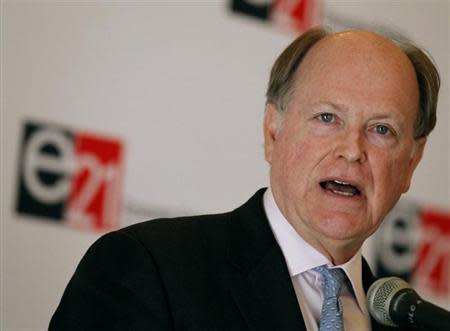Simplify U.S. financial reform rules, Fed's Plosser urges

PHILADELPHIA (Reuters) - A top U.S. central banker on Tuesday criticized the complexity of a nearly four-year-old financial-reform law, urging simpler and more transparent laws for Wall Street that would rely more on the free market to discipline banks and other firms. The president of the Philadelphia Federal Reserve Bank, Charles Plosser, who has long pitched alternatives to parts of the 2010 Dodd-Frank legislation, did not comment on monetary policy or the state of the U.S. economy. Instead he focused his speech to a conference hosted by his branch of the Fed on the U.S. central bank's role in supervising financial firms. "Simple, transparent regulatory mechanisms make it easier for market participants to predict how regulators are likely to behave," he said according to prepared remarks. "This, in turn, makes it easier for regulators to credibly commit to implementing the regulations in a consistent manner, thereby increasing the effectiveness of the regulatory regime." The Dodd-Frank law was adopted in the wake of the 2007-2009 financial crisis, when a mortgage-market bubble and excessive risk-taking on Wall Street led to the worst recession in decades. The government stepped in with hundreds of billions of dollars to bail out banks and other companies whose problems threatened to make things yet worse for the economy. Plosser said he backed the need for firms to reveal more of their internal operations to regulators and the public, as that reduces the risk of contagion between firms as well as the risk of investor runs. But he warned, as banks have, that the raft of new rules "raises both compliance costs and enforcement costs" for the firms. Without being too specific, he said simpler rules are easier for firms to follow, improve enforcement by the supervisors, and help to stabilize the financial system as a whole. Plosser said, for example, that higher capital requirements based on a firm's leverage ratio, as opposed to risk-weighted measures as mandated under Dodd-Frank, might bring about the same goals of safety and soundness at lower costs. (Reporting by Jonathan Spicer; Editing by Leslie Adler)
